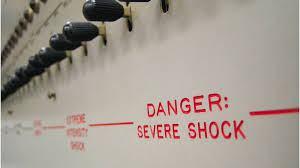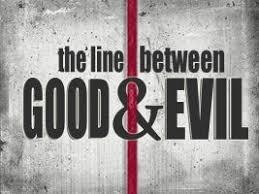 Monsters are a staple of nightmares.
Monsters are a staple of nightmares.
Recently I dreamed I surreptitiously listened in to a phone call between my wife and our dentist. The hushed conversation was frustratingly hard to make out. But I got the gist: he was commiserating about her husband being a monster. One with no clue. I did hear the phrases “repulsive personality” and “pain in the ass.”
Was it true? Should I confront my wife about what I’d heard? How could I deal with this at all? My life was shattered!
I was jolted awake.
The trigger for this nightmare was immediately obvious. I’d just been reading Robert Sapolsky’s book Behave, a scientific examination of all the factors influencing human behavior. Specifically, the chapter discussing the famous Milgram and Zimbardo experiments.

We know some people are monsters. But does everyone have a monster lurking just below the surface?

The apparent lesson of both experiments is that human behavior is very much shaped by context and circumstances. Put us in extreme circumstances, and extreme behavior will often be forthcoming. Though not always; some people have the self-possession to rise above circumstances. But most of us are not saints or angels.
Naturally, reading such stuff causes soul-searching. Hence my nightmare. Maybe, contrary to that nightmare, I’ve lived my life admirably. But if so, perhaps it’s thanks less to my character than my circumstances. It’s easy being Mister Nice Guy when everything is going nicely. I’ve never really been tested. Would I press the button to deliver severe pain in Milgram’s experiment? Would I brutalize “prisoners” in Zimbardo’s? I’d like to think not. But one can’t feel sure.
We also know that people in groups can be influenced to do things they individually never would. Thus lynch mobs.

This isn’t just a matter of affluence (though it helps; poverty can confront people with rotten choices). I don’t think the propensity to push Milgram’s shocker button correlated with income. What civilized society does is to create the structures wherein people can trust each other, with a basic bargain that you don’t harm others and they don’t harm you. In contrast to the Hobbesian “state of nature” with its “war of all against all.”
Of course it’s not perfection. Civilization, in all its complexity, does create some individual roles conducive to bad behavior. Some people are in fact tasked as prison guards. More generally, any sort of power can be problematic.

And civilization’s big picture is an upward climb, organized ever better to achieve that. A slow fitful climb through most of history, but accelerating in modern times, with ever more people enjoying the benign circumstances of life that enable us to expand the good sides of our hearts and confine the bad to ever smaller precincts. So the “better angels of our nature” prevail.

